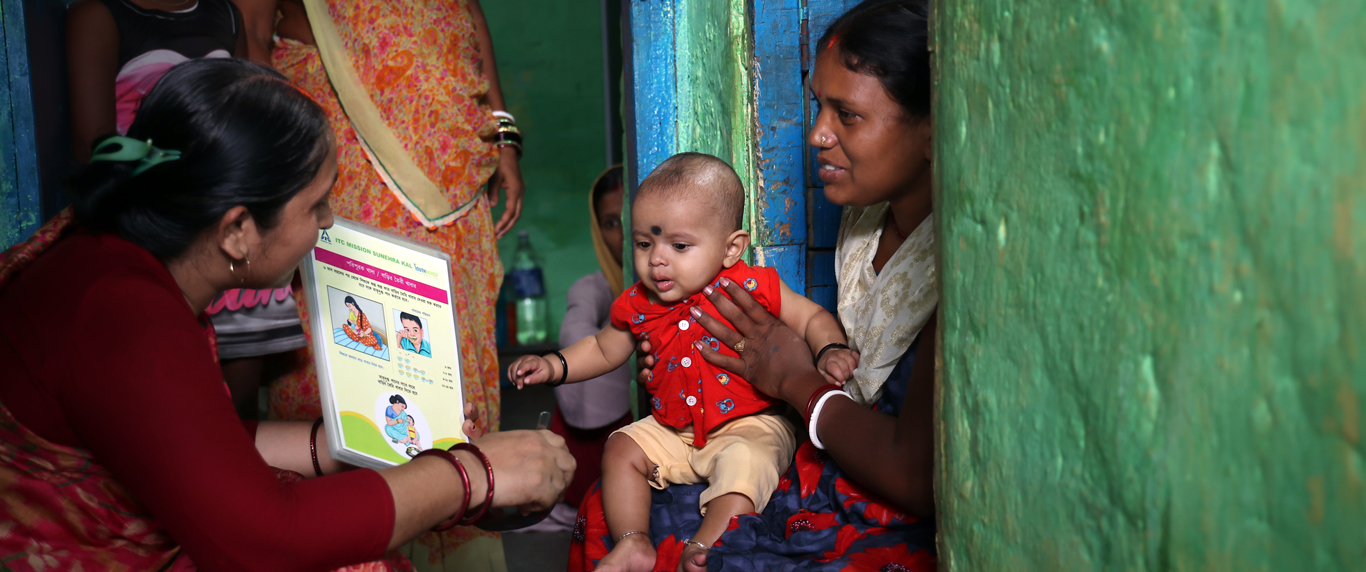
A healthy population is the cornerstone of sustained inclusive growth and development of a nation. In India, as the country continues to develop, building a resilient healthcare system is essential to support its growing population, ensuring that economic progress is inclusive and sustainable. Access to quality healthcare in rural areas is vital for improving the well-being of underserved communities across the country. A collaborative approach among all stakeholders will strengthen both preventive and curative healthcare.
Recognising the need to bridge the gaps in primary and secondary healthcare delivery, ITC has adopted a holistic approach towards healthcare. This initiative was necessitated by increasing challenges related to access to health and its impact on livelihoods, increased cost of living and disruption in education. Climate challenges are only aggravating the situation further, especially for those in rural areas, and particularly women, children and elderly.
ITC's two-pronged healthcare approach
An integrated healthcare programme, ITC Swaasth Kiran was initiated in the districts of Saharanpur in Uttar Pradesh and Munger in Bihar. This intervention aims to improve the rural healthcare by providing affordable access to quality primary healthcare services at the doorstep with support from and in coordination with the respective district health departments. Apart from primary curative health services, ITC Swaasth Kiran also encompasses preventive healthcare by driving behavioural change through awareness drives. Interventions under ITC Swaasth Kiran:
Mobile Medical Units provide the first intervention after evaluation of factors such as health needs of the community, impact, ability to deploy at a reasonable time frame, scalability, sustainability, as well as the potential to leverage it as a platform to add other need-based healthcare interventions relevant to the community.
ITC's MMUs address the 4As of community healthcare.

Each MMU is manned by a team comprising a doctor, nurse, pharmacist and a community mobiliser. They are equipped with necessary medicines, kit-based tests, and medical equipment. Consultations, tests and medicines are provided free of cost to the beneficiaries at their doorstep. The ground team works in coordination with district and block-level health officials, while the community mobiliser links specific groups of patients such as high-risk pregnant women with the relevant government system for referral and long-term care.
ITC's Mobile Vision Units (MVUs) are a one-of-a-kind intervention in the country. They provide high-quality doorstep ophthalmology services to rural communities and are staffed by an optometrist, vision technician and community mobiliser. The intervention includes MVU1, which diagnoses refractive errors, prescribes eyeglasses, diagnoses cataracts etc, and MVU2, equipped with advanced equipment for diagnoses like glaucoma and diabetic retinopathy. ITC has also partnered with Dr. Shroff’s Charitable Eye Hospital to support surgeries for underprivileged.
ITC's Certified Ophthalmic Paramedic (COP) programme addresses the shortage of trained paramedics in the eye care sector. ITC supports 12th-pass girls in a 2-year course at Dr. Shroff’s Charitable Eye Hospital in Saharanpur, offering career opportunities in hospitals, clinics, and optical stores. All Vision Technicians in ITC’s MVUs are alumni of this programme.
The Primary Health Centres (PHCs) and sub-centres play an important role in preventive healthcare and are the most reliable primary care source for socio-economically weak households. ITC has undertaken to upgrade PHC infrastructure in alignment with the Indian Public Health Standards in select catchment areas. Special focus is given to activating Rogi Kalyan Committees, which encourage community participation and ensure post-project maintenance of the infrastructure.
ITC has supported the central Ministry of Health & Family Welfare's Pradhan Mantri TB Mukt Bharat Abhiyaan to eradicate tuberculosis in Saharanpur and Munger.